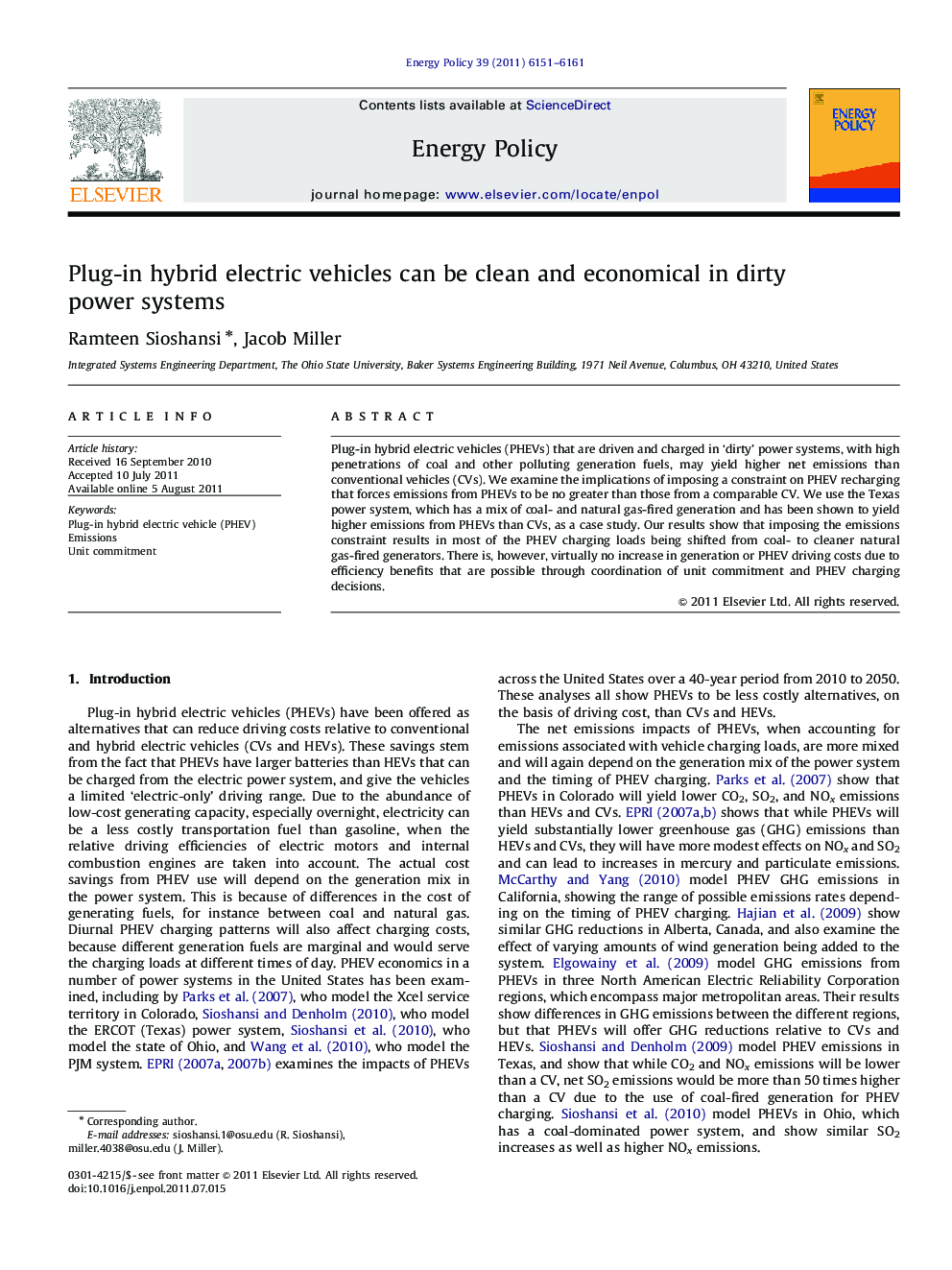| Article ID | Journal | Published Year | Pages | File Type |
|---|---|---|---|---|
| 993055 | Energy Policy | 2011 | 11 Pages |
Plug-in hybrid electric vehicles (PHEVs) that are driven and charged in ‘dirty’ power systems, with high penetrations of coal and other polluting generation fuels, may yield higher net emissions than conventional vehicles (CVs). We examine the implications of imposing a constraint on PHEV recharging that forces emissions from PHEVs to be no greater than those from a comparable CV. We use the Texas power system, which has a mix of coal- and natural gas-fired generation and has been shown to yield higher emissions from PHEVs than CVs, as a case study. Our results show that imposing the emissions constraint results in most of the PHEV charging loads being shifted from coal- to cleaner natural gas-fired generators. There is, however, virtually no increase in generation or PHEV driving costs due to efficiency benefits that are possible through coordination of unit commitment and PHEV charging decisions.
► Show that PHEVs in the Texas power system can increase SO2 and NOx emissions. ► Emissions of these species can be capped with a negligible cost increase. ► Unit commitment problems have many near-optimal solutions with different emissions.
